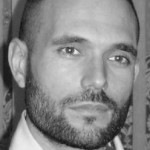Closing conference PROVIR
“Exceptional welfare: Dilemmas in/of irregular migration”
How do states respond to the physical presence and needs of people it officially has excluded? To what extent do international human rights provide protection? How does migration control and welfare policy affect irregular migrants’ experiences and subjectivities?
Physically present, but legally excluded, irregular migrants’ present societies with particular dilemmas relating to both sovereignty and human suffering. European countries increasingly involve welfare services in migration control, either by restricting access, or by using welfare services to detect/expose irregular migrants. This raises important questions concerning not only how migrants’ legal status influences their capacity to access services, but also the practical and ethical implications for service providers. Furthermore, it challenges the extent to which human rights actually limit the exclusionary powers of states and as such whether human rights are viable outside the confines of citizenship.
Provision of Welfare to Irregular Migrants (PROVIR) will be organizing its closing conference at the University of Bergen, 19th – 21th of November 2014. As an interdisciplinary project, the PROVIR research group and its international partners have combined a legal and social science approach to the provision of welfare to ‘irregular migrants’ in Norway, and comparatively in Europe, looking particularly at health care and education. The aim of the project has been to investigate the complex relationship between law, institutional practice, and migrants’ lived experience.
The closing conference aims to bring together researchers from various disciplines who are interested in the interplay between migration control and welfare policy. At the conference, findings from the PROVIR-project will be presented by the research team. In addition to presentations by key note speakers, the PROVIR research team also welcomes papers to be presented at workshops. We especially invite contributions addressing:
1) Irregular migrants’ legal situation regarding access to welfare provisions, either in national or international law.
2) Institutional practices and responses by service providers.
3) Migrants’ experiences, agency and embodiment.
We welcome both theoretical and empirical ventures into these questions, and papers may combine the aforementioned issues with interdisciplinary approaches. We particularly encourage papers exploring issues related to health, education and children. Paper proposals (maximum 300 words) can be submitted until the 25th of April 2014. Please include a short bio with the abstract. Conference registration deadline is 1st of October.
More information about the PROVIR-project is available at http://rokkan.uni.no/sites/provir/
Based on ethnographic fieldwork in Niger, Hans Lucht discusses how stranded migrants have become facilitators of the very journey they have failed to make themselves. These connection men, or ‘pushers’ as they say themselves, are now key actors in high-risk migration across the Sahara Desert via Libya to Europe. They have somehow turned all their misfortunes into a form of capital, while awaiting a new chance to go to Europe.
 Hans Lucht is a senior researcher and journalist at the Danish Institute for International Studies (DIIS) in Copenhagen. He holds a PhD in anthropology from the Department of Anthropology, University of Copenhagen. His book on undocumented migration from West Africa to Europe (“Darkness before Daybreak – African Migrants Living on the Margins in Southern Italy Today”) won the 2012 Elliott P. Skinner Book Award from the Association for Africanist Anthropology.
Hans Lucht is a senior researcher and journalist at the Danish Institute for International Studies (DIIS) in Copenhagen. He holds a PhD in anthropology from the Department of Anthropology, University of Copenhagen. His book on undocumented migration from West Africa to Europe (“Darkness before Daybreak – African Migrants Living on the Margins in Southern Italy Today”) won the 2012 Elliott P. Skinner Book Award from the Association for Africanist Anthropology.
Seminar is held in cooperation between the Institute of Social anthropology and IMER BErgen.
Sans-papiers into workers: how historic strikes changed the public face of undocuemented migrants in France
From 2008 to 2010, with the support of a coalition of trade unions and immigrant rights groups under the leadership of the Confédération Générale du Travail (CGT), thousands of France’s undocumented migrant workers conducted strikes and occupied their workplaces, demanding that their employers sponsor their regulatisation applications. Unheard of in French migration and labour history, the mobilization was based on a recent change in legislation allowing employers to solicit the regularisation of a migrant by providing a formal job offer. While the French government’s original intent was to make access to legal status contingent on employer decision alone, union action broadened its scope by bringing the whole employment relationship into the process, including the stakeholders and labour rights built into it by decades of social struggles, such as the right to strike and the right for striking workers to occupy their company without police intrusion. Based on three years of extensive participant observation and more than a hundred in-depth interviews with migrant workers, union and civil rights organization staff and activists, employers in the restaurant, cleaning, temporary staffing and construction industries, and French national and local government officials, our paper considers the strategic challenges encountered by this innovative movement which broke simultaneously with the more traditional repertoires of both French trade unions and the ‘sans-papiers’ movements of the preceding decade.
Related to the topic Chavin has also worked on a documentary film that he will bring with him:
http://www.vezfilm.org/comingforavisit/
http://vimeo.com/53048336
 Sébastien Chauvin is assistant professor of Sociology at the the University of Amsterdam and a researcher at the Amsterdam Institute for Social Science
Sébastien Chauvin is assistant professor of Sociology at the the University of Amsterdam and a researcher at the Amsterdam Institute for Social Science
Research. He was a visiting lecturer at the University of Chicago from 2003 to 2006 and a
lecturer in sociology at the Université Paris 1-Panthéon Sorbonne from 2006 to 2008. He
conducted in-depth ethnographic fieldwork with mostly undocumented Hispanic immigrant
day laborers in the Chicago region, including the staffing industry that employed them, and
the social movements in which they mobilized, as part of his PhD dissertation (EHESS Paris,
2007). Since late 2007, he has been working on a collective study exploring the labor market
experience and following the union-supported mobilization of undocumented immigrant
workers in France. His main research deals with the relationship between civic inequality and
precarious work. He also keeps an active interest in gender and sexuality studies, social capital
and the sociology of elites, social theory, and the sociology of knowledge. He is the author
of a number of articles and book chapters, as well as Les agences de la précarité. Journaliers à Chicago (Paris: Le Seuil, 2010), Introduction aux études sur le genre (with L. Bereni, A. Jaunait, and A.Revillard ; Brussels : De Boeck, 2012, 2nd edition), and On bosse ici, on reste ici: La grève des sans-papiers: une aventure inédite (with P. Barron, A. Bory, N. Jounin, and L. Tourette ; Paris : La découverte, 2011).
Communicating Migration Seminar Series IMER Bergen spring and autumn 2014
The IMER seminar series for 2014 will cover how migration and ethnic relations are communicated in every-day encounters, in mass and social media, in politics and in teaching at the universities. Has the way people talk about migration and migrants in different social contexts changed over time, and in which ways has it changed? How does migration theory and research fit in with other topics and theories in the social sciences, and how do results from migration research inform public debate and policy development? Communicating migration will be discussed from various angles in our seminar series on international migration and ethnic relations during spring and autumn 2014. We welcome papers that touch upon this broad theme from different angles. Historical analyses of change over time in regard to politics and public debate, research foci and disciplinary concerns are specifically welcomed. The seminar series will end with a two-day conference in October/November 2014.
